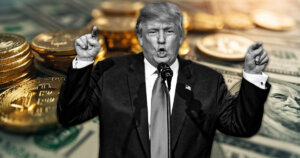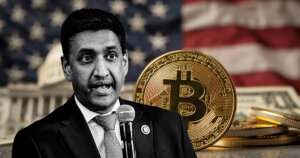 New York prosecutors to scale back crypto enforcement amid leadership transition
New York prosecutors to scale back crypto enforcement amid leadership transition New York prosecutors to scale back crypto enforcement amid leadership transition
The SDNY will keep prosecuting fraud in crypto, but fewer prosecutors will now be dedicated to these cases compared to the 'crypto winter.'

Cover art/illustration via CryptoSlate. Image includes combined content which may include AI-generated content.
The US Attorney’s Office in Manhattan will scale back its focus on crypto crimes following a series of high-profile convictions, including the recent case against FTX founder Sam Bankman-Fried
Scott Hartman, co-chief of the securities and commodities task force for the Southern District of New York (SDNY), confirmed the shift on Nov. 15 during a legal conference in New York, Reuters reported,
Cooling off from 2022
Speaking at the Practising Law Institute event, Hartman stated that while the SDNY remains committed to prosecuting fraud in the blockchain sector, fewer prosecutors will now be dedicated to crypto cases than during the height of the 2022 “crypto winter,” when collapsing crypto prices exposed widespread misconduct.
He added:
“We brought a lot of big cases in the wake of the crypto winter – there were a lot of important fraud cases to bring there — but we know our regulatory partners are very active in this space.”
The announcement comes amid broader changes at the Manhattan US Attorney’s Office. Jay Clayton, former SEC chair under President-elect Donald Trump, has been nominated to replace Damian Williams as U.S. Attorney.
Clayton’s tenure at the SEC, from 2017 to 2021, was marked by a comparatively restrained approach to crypto regulation. This sharply contrasts with the more aggressive stance adopted by the current SEC chair, Gary Gensler.
Under Gensler, the SEC has pursued numerous enforcement actions, casting a wide net across the industry and drawing criticism from some crypto executives who view the approach as excessive.
As a result, many in the sector supported Trump’s campaign, hoping for a lighter regulatory touch under his administration.
The decision to reallocate resources away from crypto cases could signal a recalibration of enforcement priorities as the industry stabilizes after a period of turmoil.



 CryptoQuant
CryptoQuant 








































































